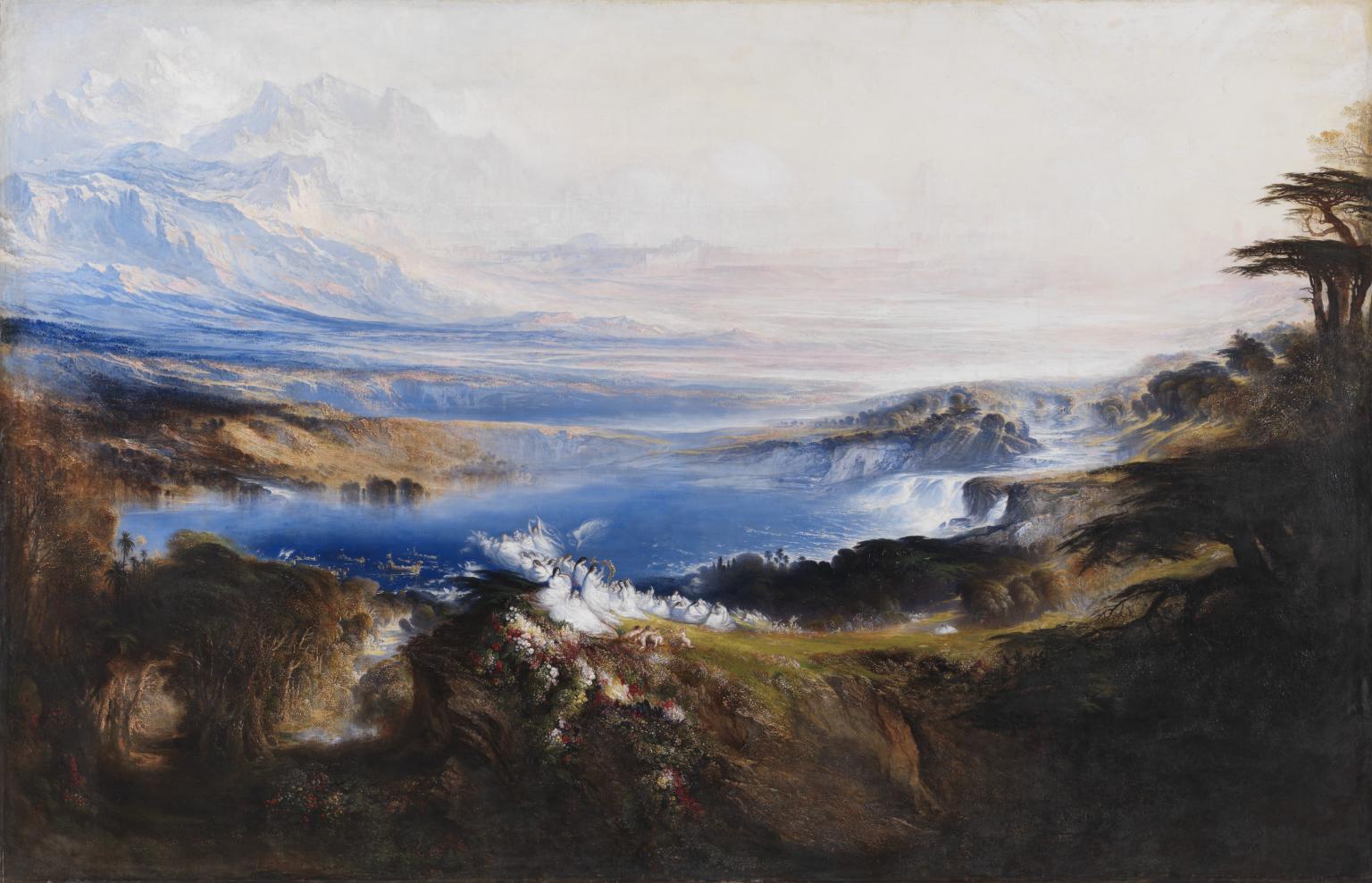Choosing My Religion
by Bill Corden (June 2019)

Plains of Heaven, John Martin, 1851-53
Einstein solved
the way things work,
the way things come together—
Stephen Hawking also knew
how black holes last forever.
With blackboards full of symbols
that make our psyches tremble,
they tell how pulses in a void
gradually assemble
into the universe we know—
and why that yellow sun does glow.
That universe, it has no edge;
It has no outer limit.
And likewise when we turn around,
there is no centre to be found.
They tell us it’s an interplay
of space and time and feeling;
But no answer for the great beyond
that sets our senses reeling.
We know how little levers act
to turn things on and off;
Science can explain it all
all you need is fact.
For all those non-believers
it tells you what is what
There’s nothing more or less to life
than this reacts with that.
Now the pontiff knows not much of this;
It’s not quite his dimension—
But he says that he speaks from God
and we are God’s extension.
He tells us all, that all there is
is the work of his creation—
and everything we do and see
is made in Heaven’s station.
So which one do I turn to
to justify my corpus?
Am I just a happenstance
or do I have a purpose?
The great religions of the world—
each one of them serene—
insist I put my faith in
an entity unseen.
We must be righteous in our path
or else we will incur God’s wrath
So underneath these words of love
is vengeance, threatened from above.
To get to your eternal rest,
your life must pass the moral test.
Now Einstein and the Doctor,
they offer us a choice.
They say there is no point to life
and that we have no voice.
No voice in the hereafter,
because there’s no such thing.
So don’t be scared of what comes next,
just let freedom ring.
‘Cos when you’re done, it’s Adios—
you won’t be one with the Holy Ghost.
Help me choose what’s best for me—
Science or Religion—
One says there is no point in this,
the other says salvation.
and finally—
Why are we here?
Philosophers throughout the ages—
all the gurus, saints, and sages—
All the books and all the essays—
all those who tell us do it my way.
All of history’s brilliant minds—
all religions . . . all mankind.
The ten commandments, sacred texts;
none can tell us what comes next.
All our concepts of divinity
Cannot describe . . . what’s beyond infinity.
We understand the quantum world
and how it’s held together;
We watch the grand design unfurled
just like a newborn feather.
It’s all a puzzle, solved by math
except . . . the meaning of God’s wrath.
We know it flows in perfect order
to endless space without a border;
In harmony and symmetry—
but do we know . . . why we’re meant to be?
As we delve, delve ever deeper,
the road we travel just gets steeper.
Every little nut we crack
sends us down another track.
We measure tiny blips and waves
but nothing takes us past the grave.
Kant, Descartes and Plato, too,
knew little more than me and you
about the final, great unknown—
the place to which . . . our souls are blown.
And so we turn in desperation
to our own imagination.
Invent a God who’s not been seen—
to be the crutch . . . on which we lean.
For all we’ve learned, we place our faith,
in an omnipresent wraith
Who won’t reveal ’til we are dead
the meaning . . . of the life we led.
«Previous Article Table of Contents Next Article»
__________________________________
Bill Corden is a happily retired sports columnist living in Vancouver, British Columbia. Now he writes, plays music and makes people laugh.
Follow NER on Twitter @NERIconoclast